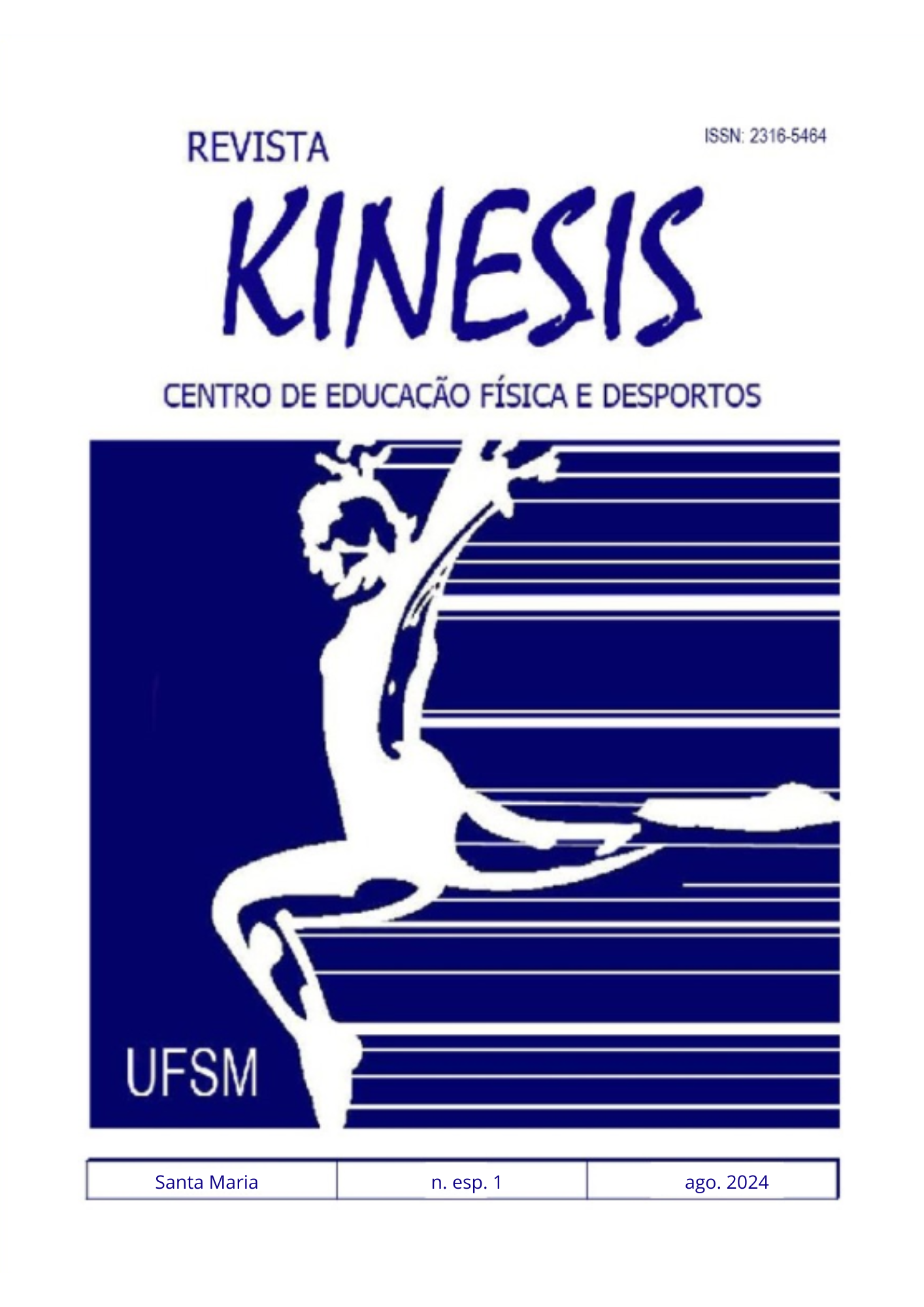Deaf Mini Volleyball and Motor Praxeology: an essay on interdisciplinary practices in Physical Education a Physiotherapy
DOI:
https://doi.org/10.5902/2316546484681Keywords:
Deaf mini voleibol, Motor Praxeology, Physical Education and PhysiotherapyAbstract
This essay presents the deaf mini volleyball as a methodological proposal adapted for teaching volleyball to the deaf, bringing thoughts about social representation and the extremely important role for the construction of deaf identify related to hearing word. A contextualization of the deaf community and sport is carried out, trying to cite only deaf authors on this theme, pointing out that the deaf do not participate in the Paralympic Games, as their difference lies in the development of their potential through the gestural-visual channel, not fitting in, also, in the Olympic Games but in an event of its own, the Deaflympics (International Games for the Deaf). In volleyball training for the deaf community held at the Associação dos Surdos de Santa Maria (ASSM), it was noticed that the technical training model for hearing athletes did not arouse the desire to participate in the activity. For the deaf, training should have meaning and a direct relationship with the logic of the game, signaling an approximation with Motor Praxeology. Another aspect pointed out is the balance of some deaf athletes being different from hearing athletes during the execution of the touch, forearm pass, block, etc. The physiotherapist can identify these singularities and work together with the physical education professional, in order to enable the motor action, suggesting Pilates exercises that can be integrated into the training of deaf athletes.
Downloads
References
BRASIL, República Federativa do. Lei n° 10.436, de 24 de abril de 2002. Disponível em: http://www.planalto.gov.br/ccivil_03/leis/2002/l10436.htm . Acesso em: 20 de abril de 2021.
BRASIL, República Federativa do. Decreto n° 5626, de 22 de dezembro de 2005. Disponível em: http://www.planalto.gov.br/ccivil_03/_ato2004-2006/2005/decreto/d5626.htm . Acesso em: 20 de abril de 2021.
DI FRANCO, Marco A. R. Esportes Surdos na constituição da identidade. 2015. Disponível em: http://www.2015.sbece.com.br/resources/anais/3/1430063771_ARQUIVO_Completo_SBECE_EsporteSurdos.pdf . Acesso em 20/04/2021
DI FRANCO, Marco A. R. Surdolimpíadas (Deaflympics): histórias e memórias dos esportes surdos no Brasil (1993 – 2017). Tese de Doutorado. UFRGS, 2019.
DI FRANCO, Marco A. R.; PALUDO, Simone dos S.; LEBEDEFF, Tatiana B. Esportes surdos na constituição do ser social: uma compreensão histórica sob a perspectiva da Educação Ambiental. Revista Educação Especial v. 28, n. 52, p. 365-376, mai./ago., 2015. Disponível em: https://periodicos.ufsm.br/index.php/educacaoespecial/article/view/14964
MAKARACI, Y. et al. Center of pressure-based postural sway differences on parallel and single leg stance in Olympic deaf basketball and volleyball players. Journal of Exercise Rehabilitation, v. 17, n. 6, p. 418–427, 2021.
NORASTEH, A. A.; ZAREI, H. Studying Balance in Deaf People: A Systematic Review Study. Journal of Rehabilitation, v. 20, n. 1, p. 2–15, 30 abr. 2019.
RIBAS, João Francisco Magno. Contribuições da Praxiologia Motriz para a Educação Física escolar– Ensino Fundamental. 2002. 256 f. Tese (Doutorado) - Curso de Educação Física, Universidade de Campinas, Campinas, 2002.
SOSLU, R. et al. Deaf and non-deaf basketball and volleyball players’ multi-faceted difference on repeated counter movement jump performances: Height, force and acceleration. Frontiers in Sports and Active Living, v. x, n. xx, p. 1–12, 2022.
SOUZA, M. E. G; MIRANDA, J. Minivoleibol para surdos: uma breve pesquisa bibliográfica e relatos de práticas na Associação dos Surdos de Santa Maria. Porto Alegre: Editora Alcance, 2021.
STROBEL, K. L. As imagens do outro sobre a cultura surda. Florianópolis: Ed. Da UFSC, 2008. Disponível:https://www.academia.edu/41857386/As_imagens_do_outro_sobre_a_cultura_surda?pop_sutd=fals . Acesso em 14 de março de 2022.
ZAREI, H. et al. The effects of Pilates training on static and dynamic balance of female deaf students: A randomized controlled trial. Journal of Bodywork and Movement Therapies, v. 24, n. 4, p. 63–69, 1 out. 2020.
Downloads
Published
How to Cite
Issue
Section
License
Copyright (c) 2024 Maria Esther Gomes de Souza, Léo Rubin

This work is licensed under a Creative Commons Attribution-NonCommercial-ShareAlike 4.0 International License.
The works must be submitted in the digital format of the SEER platform, via the electronic address: http://periodicos.ufsm.br/kinesis/index. In case of any doubts, contact the editorial team through the email kinesisrevista@ufsm.br. The authorship that publishes in the Kinesis journal agrees to the following terms:
- They retain copyright and grant the journal the right of first publication.
- They allow and are encouraged to publish and disseminate their work online (e.g., in institutional repositories or on their personal page) as this can cause positive alterations, as well as increase the impact and quotation of the published work.







